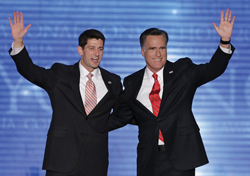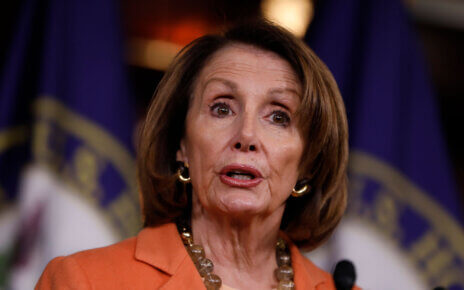The debates are complete, the polls are now closed, and the announcements have been made in regards to 2012 presidential victor Barack Obama. To some this victory is not a surprise and is something to be celebrated, especially for the democratic party; for others though this win comes either as a surprise or as a pivotal letdown in the course the majority of the country has decided to take a look back to the Romney/Ryan campaign and wonder how this end result came about.
There has been discussion about what the Republican team did wrong in their running for the presidency as noted by sophomore Jessica David, a political science major. “I’ve noticed on most of the main media coverage’s of the election results how they criticized Romney’s campaign, but I don’t think that he really did as bad as they [the media] made it out to be,” says David who mentions that it was Romney’s campaign that had driven her to vote for the first time this year as a registered member of the Republican party.
When asked about the outcome she contends that “I was disappointed for sure when I saw Obama won primarily because I don’t think that he is going to deliver all of these promises about building up the economy and making jobs. I think that we are just going to see a repeat of what happened four years ago, all of this talk about big change and absolutely nothing done about it.”
The blame circulating around the Republican’s loss however seems to vary depending on who is asked; As mentioned in an article by Sarah Tanksalvala in The Examiner on November ninth, different members of the Republican spectrum are seemingly developing an internal war amongst themselves as they point fingers and chose whom is to blame for the losses. “Conservatives blame the GOP for nominating a moderate candidate and conservatives, moderates and libertarians accuse evangelicals of discrediting the ticket and then staying home,” writes Tanksalvala. She also records that some believe the party betrayed them by not nominating Ron Paul, whereas other blame Romney for simply running a sloppy campaign.
Tanksalvala looks deeper into the matter of the Democratic win and the Republican response towards it. She notes that the republican party’s greatest virtue, their intellectual diversity, is also the chink in their armor; as a result, after a loss, they look inward towards what didn’t work in the campaign, and how they must reevaluate their strategies, rhetoric, and even the very policies that they stand for.
In contrast, she writes that when Democrats were faced with a loss they chose to strengthen their very principals and push forth with getting the rest of the country on board with those very same ideals by the next election. “Republicans think in terms of elections, and Democrats build long-term infrastructure to promote their ideology beyond elections,” Tanksalvala concludes, “Does that mean that Republicans shouldn’t evaluate and re-evaluate their ideas on the basis of merit? No, but it means they shouldn’t reevaluate those ideas on the basis of being more electable.”
It is this shifting in policies that most Republicans are accused of doing especially during election season, something that Mitt Romney in particular was called out on ever since he entered the presidential competition.
Kopeweise, a junior communication student, recalls the many leaps made by Romney throughout the election. “I thought that in the end the Romney/Ryan plan addressed the big issues within the country and it looked like they had a solid platform and presented it well, especially during the debates. I did notice though that there was some shifting about in his [Romney’s] platform around the time that he chose Paul Ryan for his running mate,” says Kopeweise.
He mentions how the unsteadiness around Romney’s stance didn’t deter him though, even when it was emphasized heavily in several media discussions. “Usually television shows and the news bring up things over and over, and make a big deal out of nothing. I have my own ideas of what our problems are as a country and I still believe that Romney’s plan was the course of action that would of addressed those needs. That’s simply what I believe and no amount of John Stewart jokes or anti-Romney headlines will change that,” says Kopeweise.
As mentioned by Tanksalvala, the Republican Party is going to have to look beyond their usual small-government ideals to connect with the American people, despite the appeal it has proven to have towards the public in the past. As Tanksalvala said, it would appear that the “Time has come that the Republicans cannot simply overcome obstacles, bias and vilification, they must confront them directly.”
As put by senior Jim Miller, a Republican voter for three years now, the policies are not the problem, it is the after effects of dealing with the loss; the very message that Tanksalvala has been pushing this whole time. “In the end, win or lose, there is still loose ends to tie up and damage control that must be executed so as to prevent any more tension amongst the already raw surface of the American public. I believe in the Republican policies, Romney’s job plan in particular, and would ultimately support them. It’s about time that the faces and top-gunners of the Republican Party do the very same instead of conforming to what worked for the other side,” states Miller.
No matter the turnout though, the victor or the loser, it is never too late to look ahead and plan. There will always be the shift in power, the media will always have their own brand of influence, and the game of politics will be every changing as a result. Now more than ever is the time for Republicans to learn the rules and play the game, for 2016 will be here before you think.
IMAGE TAKEN from washingtonpost.com



